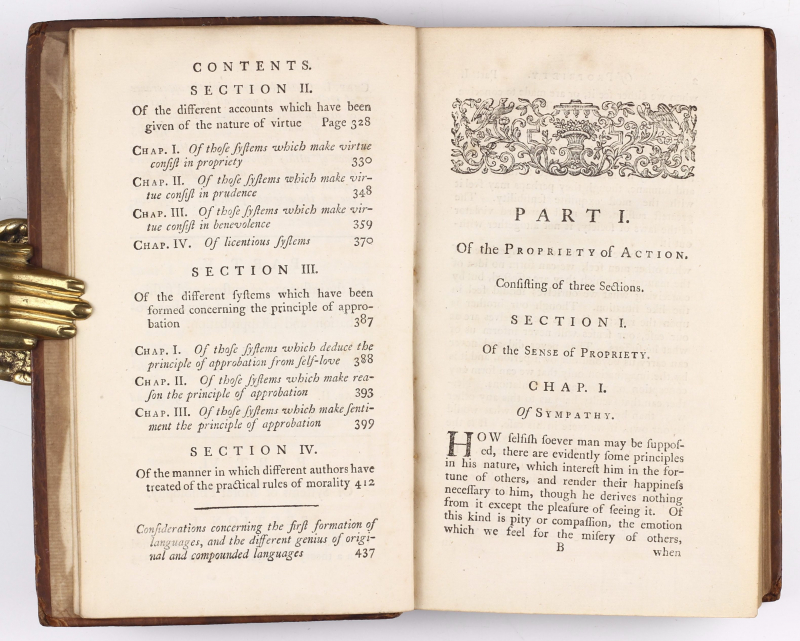Smith was a moral philosopher as well.
Although Smith is most recognized for his economic theories, he was also a moral philosopher who had a great deal of influence. Smith produced a significant portion of what is currently thought of as a common view regarding the idea of markets. The Theory of Moral Sentiments (1759) and The Wealth of Nations (1776), two of Smith's key writings, are both focused on self-interest and self-governance. He advanced the idea that empathy, which is a quality shared by all individuals, is the source of our moral sentiments; this thought is also known as "putting ourselves in their shoes."
Smith looked at the process through which "mutual sympathy" might be used to justify primal feelings and produce moral judgments in "Theory of Moral Sentiments." The man was self-interested and self-commanded, according to Smith's thesis. According to Smith, the foundation of individual freedom is self-reliance or the capacity for a person to act in accordance with the rules of natural law and seek his or her own self-interest.
Smith created the framework for a broad morality with this book. In the development of political and moral philosophy, it is a crucial text. It offers the foundational principles for Smith's later writings in terms of ethics, philosophy, psychology, and methodology.










